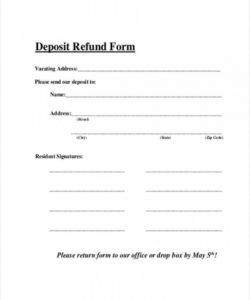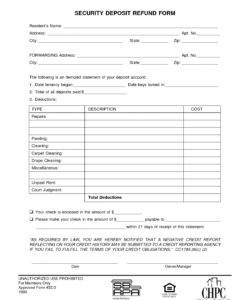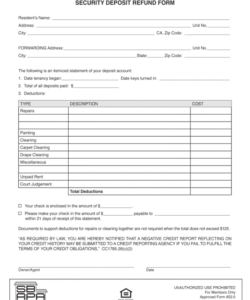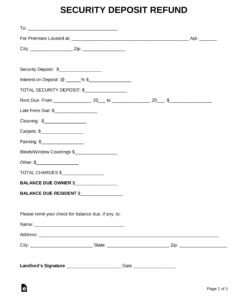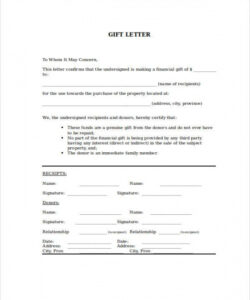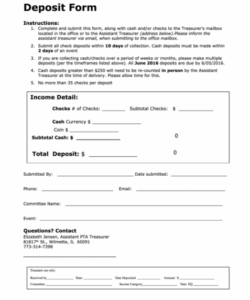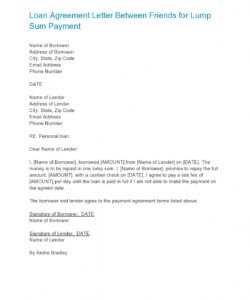Security deposit return form template, A great deal of money management courses and specialists admit that savings are a significant starting point towards owning a secondary income. Savings in this regard point towards the money that’s saved each time someone gets any kind of money be it salary, presents or tax refunds. The savings you create over a lengthy period of time or even a shorter one could end up being as important as having another flow of revenue. These savings consistently help you particularly in meeting unexpected expenses and realizing future goals.
Custodial – this type of coverage requires the landlord to pay the full quantity of the deposit into a documented scheme. The money is held in the strategy until the tenant leaves the property. Providing there are no disputes the deposit is paid back to the tenant. Where there’s a dispute that the scheme utilizes an adjudicator to arbitrate between landlord and tenant. The adjudicator’s decision is usually final. Insurance – with an insurance type strategy the landlord retains the full deposit. The landlord pays a charge for insurance to safeguard the deposit. The insurance has to be obtained using a government approved strategy. After the tenant leaves the house that the landlord repays the deposit back to the tenant. Insurance kind schemes also have an adjudicator service in case there’s a dispute. If a dispute does arise that the adjudicator will need the landlord to pay the full deposit into the scheme while the dispute is investigated.
A landlord has 28 days to enroll a deposit with a custodial or insurance type scheme. Information concerning the registration of the deposit has to be supplied to the renter. Under the Housing Act there is a prescribed format for information to be provided. The landlord can be taken to court by the tenant in which the information hasn’t been supplied in the right format. Tenants have the right to go back six years before taking action against the landlord.
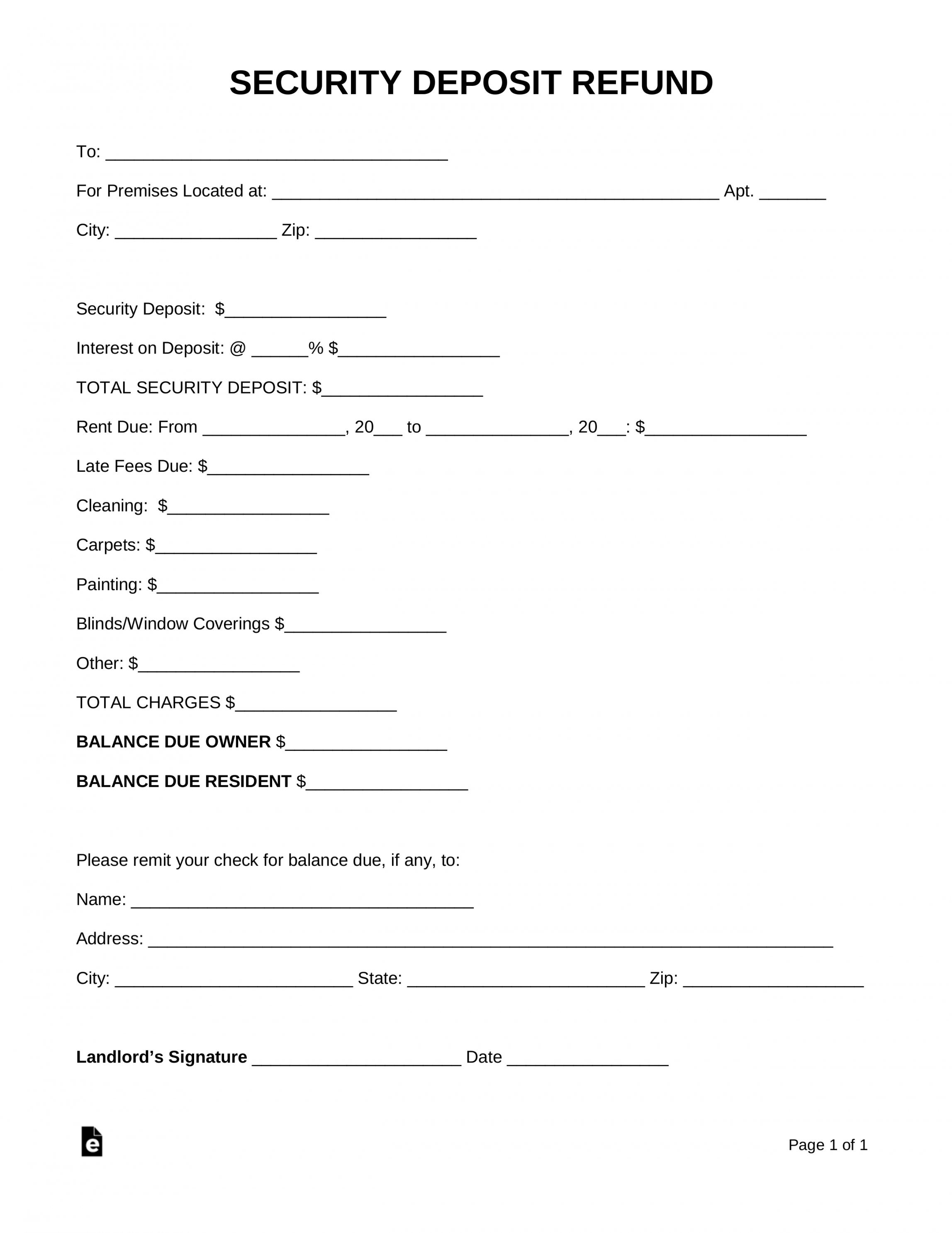
Where the landlord fails to register the bond you will find penalties. The landlord can have to pay the tenant a sum three times greater than the deposit; or they can be required to pay back all lease and a punishment or the landlord could lose the right to evict the tenant in the property the choice on the penalty is taken by the court. Some landlords say they don’t take deposits they only ask the tenant to pay two months rent beforehand. If the tenant pays rent monthly along with the landlord always has a float of one month’s rent this is the same as taking a deposit and the principles concerning failure to register a deposit will apply.

